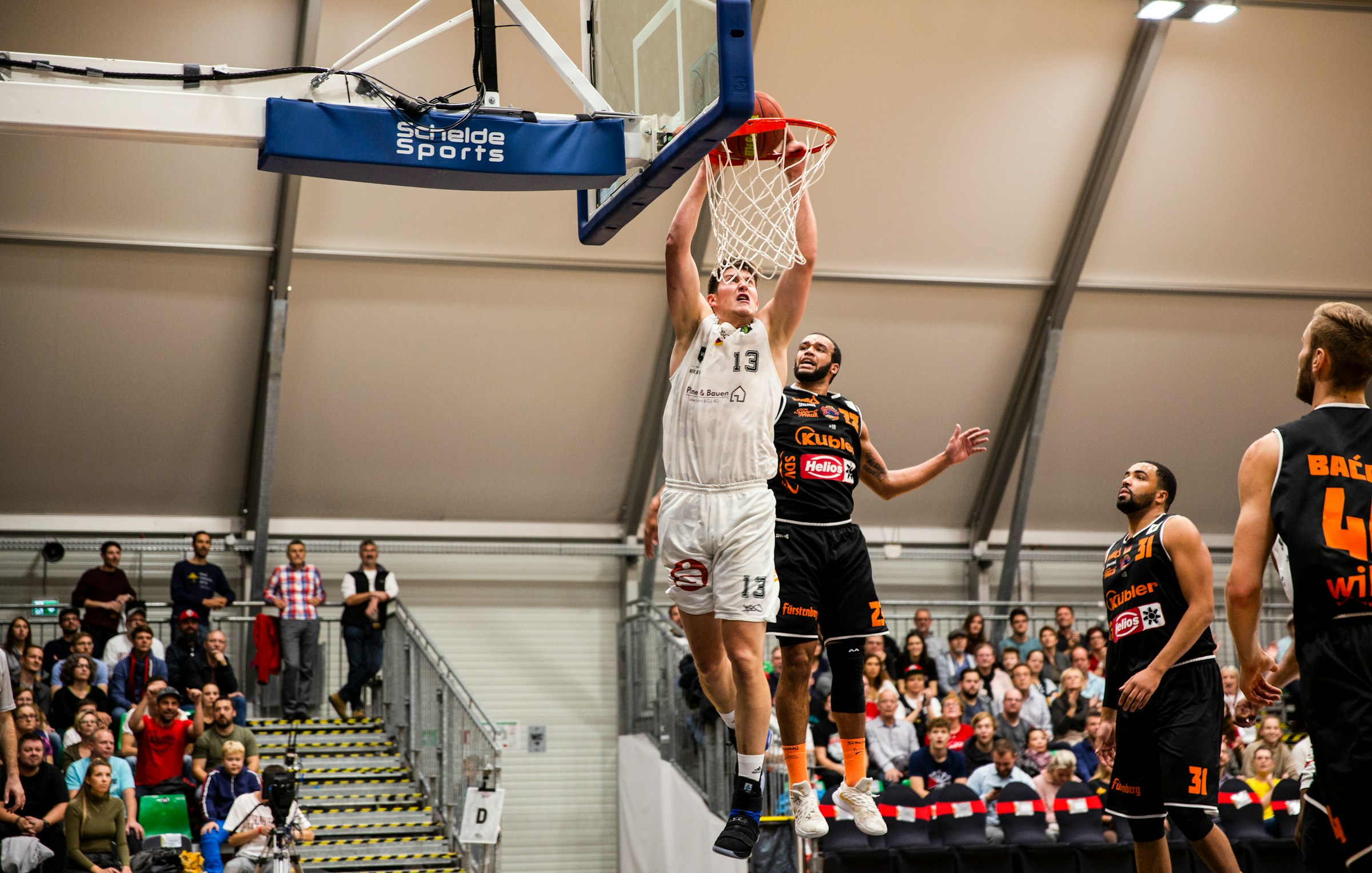Understanding Mental Fatigue in Basketball
Mental fatigue can significantly impair basketball performance, affecting both decision-making and physical execution. Unlike physical exhaustion, which is easier to identify, mental fatigue might subtly hinder an athlete’s ability to focus and make quick judgments. Recognizing mental fatigue is crucial to sustaining peak performance, as it can lead to decreased psychological resilience and heightened errors during play.
Common signs of mental fatigue in basketball players include a noticeable reduction in attention span, increased irritability, and impaired strategic thinking. Players might also experience difficulty in maintaining their usual enthusiasm and motivation for the game. Identifying these symptoms early is key to preventing their escalation into more critical issues during matches.
Additional reading : Top Ankle Stability Workouts for UK Basketball Players: Boost Your Game Performance!
Understanding the impact of mental fatigue extends beyond recognizing the signs; it encompasses addressing its root causes and implementing strategies for prevention. Frequent in intense training schedules, mental fatigue may accumulate, eventually affecting performance on the court. Thus, having measures in place to recognize and address mental fatigue early can help athletes maintain sharper focus and boost their overall basketball performance.
By prioritizing an awareness of mental fatigue, players, coaches, and trainers can work collectively to sustain mental acuity, safeguarding athletes’ long-term success and psychological resilience in competitive scenarios.
Additional reading : Master These Key Agility Drills: Vital for UK Basketball Forwards to Achieve Peak Performance
Strategies for Developing Mental Grit
Developing mental grit is crucial for athletes in maintaining high levels of performance, especially when faced with challenging situations. Implementing psychological strategies helps build resilience and aids in overcoming mental obstacles.
Visualization Techniques
Visualization is a powerful tool used by athletes to mentally rehearse skills and scenarios. By picturing successful outcomes, players can increase confidence and boost performance under pressure. Effective visualization engages all senses, allowing athletes to experience the game mentally before it unfolds physically.
Positive Self-Talk
Positive self-talk involves replacing negative thoughts with empowering affirmations, which can improve mental toughness. Athletes often use this technique to bolster self belief and focus during critical moments, reducing anxiety and enhancing resilience. A consistent practice of positive affirmations can be a game-changer in a player’s mental toolkit.
Setting Realistic Goals
Setting SMART goals—Specific, Measurable, Achievable, Relevant, Time-bound—helps athletes maintain motivation and focus. Breaking down larger objectives into smaller, manageable tasks allows for clearer progress tracking. Goal-setting fosters a sense of achievement and growth, essential for sustained psychological resilience.
Employing these strategies can significantly enhance a player’s mental framework, equipping them with necessary tools for managing challenges and maintaining peak performance in demanding sporting environments.
Coping Mechanisms During Training
To navigate the rigours of intense training, athletes need effective coping mechanisms to bolster their mental resilience. Training strategies that focus on stress management are invaluable in maintaining mental toughness. Mindfulness techniques, such as meditation, help athletes remain present, enhancing focus and reducing anxiety during high-pressure sessions. This practice encourages a calm mindset, facilitating better performance by lessening the impact of overwhelming thoughts.
Incorporating structured breaks into training regimens aids recovery and mental refreshment. Regular intervals for rest not only rejuvenate physical energy but also prevent the buildup of mental exhaustion. These breaks are crucial for sustaining concentration levels and mitigating stress, allowing athletes to return with renewed vigour.
Prolonged training sessions without mental respite can lead to diminished productivity and increased fatigue, making the integration of recovery practices essential. Strategies like these foster a balanced approach, ensuring athletes remain resilient even under demanding conditions.
By utilising these coping mechanisms, basketball players can better manage stress, avoid burnout, and optimise their training, contributing to enhanced performance on and off the court.
Game-Day Mental Preparation
Game-day preparation is crucial for any basketball player aiming to achieve peak performance enhancement. Establishing routines and rituals can significantly contribute to mental readiness and stability. These practices, tailored to individual needs, provide consistency and a calming effect, reducing pre-game jitters and enhancing focus.
Routines and Rituals
Developing personal rituals before a game can help in creating a mental state conducive to success. This could be listening to a specific playlist, engaging in light physical warm-ups, or visualising successful plays. Such rituals cement a player’s focus and readiness as the game begins.
Team Dynamics and Support
The role of team support cannot be underestimated. Encouragement and camaraderie among teammates elevate collective resilience. Teams that foster a supportive environment boost individual mental readiness and lead to enhanced on-court performance.
Pre-Game Visualization
Pre-game visualization is another powerful technique. Athletes imagining successful gameplay scenarios can boost their confidence level. Visualisation helps in mentally rehearsing the game, thus preparing players for swift decision-making during live action.
By integrating these game-day preparation strategies, players can approach competitive scenarios with confidence and assurance, maximising their potential and fostering improved athletic performance.
Leveraging Research and Expert Insights
In the realm of sports, research insights and expert advice play pivotal roles in enhancing athlete performance. Studies focusing on mental resilience underscore its importance in sports, revealing that engaging mental training significantly boosts both individual and team outcomes. Research highlights how implementing structured psychological training regimens develops an athlete’s ability to manage stress, thereby improving overall performance.
Insights from professional UK basketball players shed light on this practice. For instance, athletes like Luol Deng have emphasized the crucial impact of psychological readiness in overcoming mental fatigue. Deng’s approach to maintaining focus through rigorous mental preparation demonstrates the integration of these insights into practical play. Using experiences shared by professionals can provide valuable expert advice for those aiming to elevate their game.
Furthermore, understanding athlete success stories reveals how such strategies culminate in outstanding performances despite adversities. These narratives, bolstered by research, advocate for the importance of fostering mental resilience alongside physical training. By leveraging these research insights, players and coaches can tailor mental conditioning programs to promote long-term athletic achievement. Fostering an environment that prioritizes mental and physical synergy ensures athletes are well-equipped to handle the nuances of competitive play.
Challenges Specific to UK Basketball Players
Understanding the nuanced challenges faced by UK basketball players is essential for enhancing their resilience and performance. The competitive landscape within the UK presents unique pressures, shaped by specific environmental and cultural factors. Unlike in countries where basketball is a dominant sport, UK players often contend with limited exposure and resources, impacting both development and visibility.
Cultural factors can play a significant role, with players needing to navigate varying levels of support and infrastructure compared to traditional basketball markets. This often requires a tailored approach to training and psychological readiness to maintain competitive edge during local leagues and national tournaments.
The pressure of competition in these settings is exacerbated by a desire to excel and represent at higher levels. To tackle these challenges, players are encouraged to adopt tailored strategies that focus on building mental toughness. This includes leveraging psychological techniques and resilience training tailored to UK-specific nuances.
Recognising and addressing these unique challenges is vital for fostering sustained mental toughness. Solutions such as community support networks and focusing on continuous skill development can empower players to thrive amid the competitive demands of UK basketball. By embracing these strategies, athletes can significantly enhance their capacity to succeed on both national and international stages.

